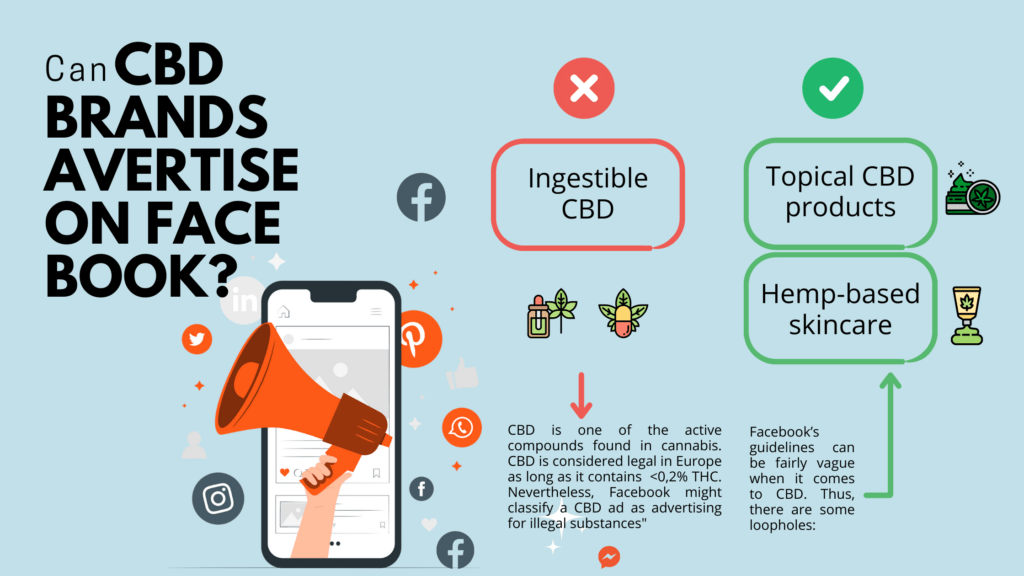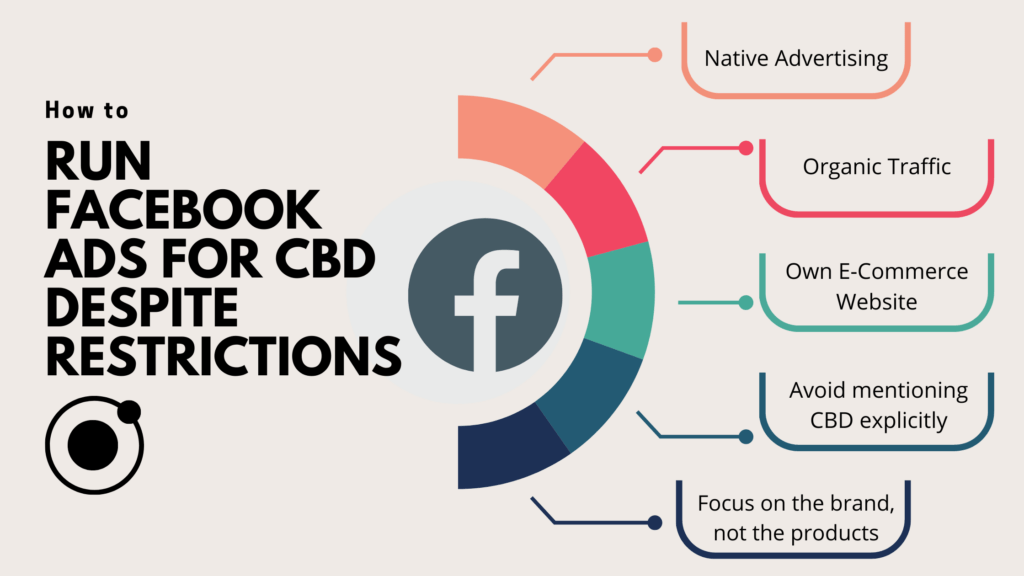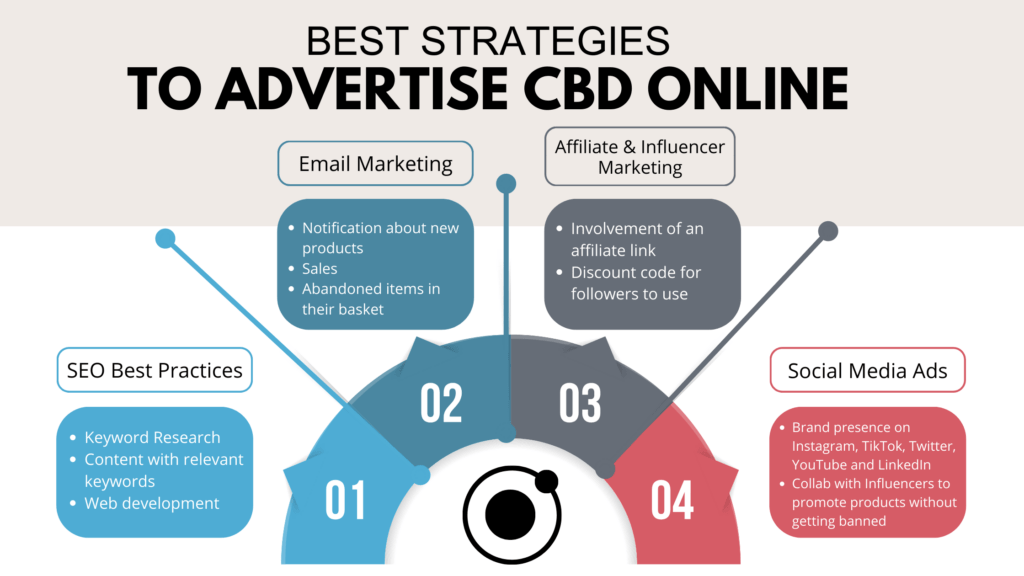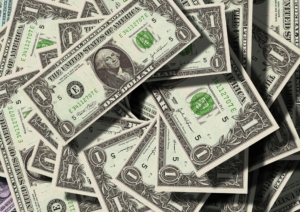Summary
How can your business straddle the line between what CBD content Facebook does and doesn’t accept? There are a number of ways. Despite harsh marketing restrictions on cannabidiol, there are ways for your brand to gain attention on the social media platform without using PPC ads.
Introduction
When it comes to selling CBD on Facebook, there is a right and a wrong way to do things. Unfortunately, Facebook’s guidelines can be fairly vague when it comes to CBD. Despite being a rapidly-growing industry, CBD has yet to properly shake off the stigma associated with illegal (recreational) cannabis.
In fact, CBD itself has different potential effects than the plant from which it is derived. This has led to an increasing number of countries legalising CBD oil and other supplements- as well as an ever-expanding target market of loyal consumers who are keen to see whether the compound can positively affect their wellbeing and suit their lifestyle.
While CBD is a fan favourite across the wellness industry, the fact remains that there are still many hurdles for business owners to jump when it comes to marketing their CBD products[1]. While many other businesses can find their niche in the wellness industry and efficiently market their products using social media, many platforms forbid the paid advertisements of CBD.
Today, we will be taking a deep dive into Facebook’s CBD regulations- does Facebook allow cannabidiol to be marketed on their platform? What rules should business owners consider on the road to creating a fully-fledged marketing plan for social media? We will also have a brief look at some alternative social media platforms and other ways to market a CBD brand that may be more worthwhile in the long run than Facebook advertisements.
What Does the Law Say About CBD?
Let’s get one thing straight: CBD is legal, as long as products meet specific standards (which can differ from country to country and state to state). In the UK and throughout much of the EU, CBD products must contain no more than 1mg of THC (the intoxicating compound found in cannabis) per product. CBD products must also be derived from the hemp (cannabis Sativa) variety of the plant. The best CBD products come with a certificate of analysis (COA) that verifies precisely which plant compounds (also known as cannabinoids) are present in the product.
When looking at CBD advertising laws, the rules are also fairly murky. As a general rule, brands cannot make any outlandish health claims about their products. CBD cannot be said to cure serious illnesses or symptoms of various ailments.
In the UK, CBD is generally considered to be a supplement for wellbeing and general health, and must be marketed outside of a medical context.

Facebook Advertising Policy
When most brands talk about advertising on Facebook, this refers to the reasonably straightforward practice of producing an ad campaign full of sponsored posts on Facebook’s website, which will appear as part of targeted posts as potential consumers scroll through their feed.
However, this is not the case for CBD, which is (for the most part) not allowed to be traditionally advertised on the platform. Businesses can still post about CBD; however, paid advertisements are out of the question. Recently, the platform has decided to loosen its guidelines around certain hemp products, which we will discuss shortly. However, for those businesses which specialise in non-topical products, it’s worth looking into certain advertising alternatives.
So, what does Facebook say about CBD in particular? Nothing. The truth is, Facebook’s advertising policy is relatively vague, and only mentions’ illicit products’ (which can include supplements for adult use, like CBD).
As part of this, paid ads must not include references to, or promotions of, any illegal or misleading products- particularly where health and wellness is concerned. As CBD is derived from cannabis (a plant that is not yet legal on a federal level in the US, where Facebook is based), Facebook doesn’t allow it to be promoted on the platform.
While this might initially seem easy to work around- after all, CBD isn’t the same thing as cannabis- Facebook’s internal guidelines essentially prohibit hemp products from being seen on their sponsored posts. As the platform is based in the United States, their rules regarding illicit substances extend to those businesses that are not registered in the US- meaning even European CBD companies must comply to the rules of their platform.

Of course, this isn’t the end of the line for advertising CBD on Facebook[2]. As the legal situation surrounding cannabidiol continues to develop, it’s likely that Facebook may relax their attitudes towards paid advertisements as well.
While Facebook hasn’t yet made their specific policies towards CBD public, it’s essential to do your research when it comes to how they have treated CBD brands in the past. By inadvertently breaking the rules, your business can quickly find itself prohibited from posting, or altogether banned from the platform. As such, making the wrong post on Facebook can be a waste of valuable marketing time and budget for your brand.
A Promising Future
As of 2019, Facebook has loosened their grip on advertisements for hemp-derived products by allowing topical hemp products to be advertised on their platform- under strict regulations, of course.
Thanks to this change, advertisers can direct potential customers to landing pages featuring hemp-based skincare and potentially CBD. However, as Facebook prohibits ads featuring ingestible CBD, the landing pages for topical hemp products should also not feature any mention of the compound.
Of course, this can be quite a problem for CBD brands whose websites showcase their products effectively! Unfortunately, it is one issue that must be either avoided (by not using sponsored Facebook ads in the first place) or dealt with directly (which may be easiest for skincare-only CBD brands).
However, the fact that Facebook is beginning to relax their regulations at all can be taken as a good sign of the future. It is widely speculated that these guidelines will continue to relax across all social media platforms, mirroring the broader scope of CBD acceptance across the world.
How Can You Market CBD on Facebook?
Of course, as with most rules, there are ways to get around Facebook’s CBD ban- especially considering the fact that they’re slowly opening their doors to the compound. While there is always a risk of CBD brands being penalised, here are a few ways to help ensure your Facebook marketing efforts are rewarded:
- If you mention CBD in your Facebook advertisement, you are only allowed to drive the traffic to an educational page through a Learn More call to action. It doesn’t stop there, you need to make sure your educational page also complies (Facebook scans this too) – NUOPTIMA can help out with this.
- This means you can’t drive high intent conversion traffic from Facebook to your website if you refer to your product as CBD!
- If you instead call your product Hemp, you are allowed to drive traffic to a shoppable page. There is a fine line you will have to walk if you’re driving traffic for ingestibles vs topicals. This is also something NUOPTIMA can help you with.
- There are also other clever ways to acquire the email addresses of users interested in CBD without pushing traffic to shoppable pages initially, such as quizzes and well crafted landing pages.
Keep in mind is that Facebook’s approval process for paid ads is largely automated. So, their bots will thoroughly inspect every aspect of your ad, from the images to the text and landing page (including the contents of your website) in order to decide whether or not the ad should be approved according to Facebook’s internal guidelines.

However, we have noticed when advertising CBD or Hemp, your ad is more likely to go through a manual approval process. If you push too many uncompliant ads live you can risk your account being banned. In this case, working with an agency is highly beneficial, you get the benefit of their experience and access to experienced Facebook reps which can pre-approve adverts.
It’s important to note that, even if your advertisement doesn’t include mention of the word CBD, the landing page it redirects to on your website also cannot mention the substance. This can present quite a problem for those brands who use ‘CBD’ in their name and general product identity- and this problem is, for the most part, still ongoing. Some brands create a new website for the sole purpose of selling their topical hemp products, and some brands have managed to effectively negotiate with Facebook to work around this ban. In contrast, others prefer to forgo paid Facebook advertising altogether and instead go via an alternative (which we will discuss shortly).
Can You Advertise CBD on Facebook?
Yes! Facebook is one of the most popular advertising platforms on the internet. The key to success is to understand how to channel the correct intent traffic to the correct landing page.
The Best Strategies for CBD Advertising on Facebook
Considering how incredibly secretive Facebook is about their guidelines, it’s no surprise many CBD brands are eager to figure out how to properly utilise the platform within their marketing strategy. There are several ways to do this without being overtly banned from the platform, such as targeting keywords like ‘hemp oil’ rather than explicitly mentioning CBD throughout your marketing content.

Native Advertising
Native ads are simply those that appear to be average posts on the platform: they aren’t sponsored posts, but they are typically made with the intent to sell a product. Because they aren’t paid advertisements, it is generally okay to mention CBD in these sorts of posts.
As a general rule of thumb, these types of posts aren’t overly ‘sales-y’ and instead focus on a potential benefit of CBD or a way to fit the compound into one’s daily routine. Be sure to stay compliant with general CBD marketing laws, such as avoiding making medical claims, in all your content.
Take care to make valuable content for your customers, as Native ads don’t always lead to conversions- but they can lead to an increased perception of authority and trust in your brand. In turn, this can translate to more leads and conversions in the long run.
Build trust by educating consumers on the importance of third-party lab testing, as well as what your CBD products may be able to do for them.
While common advice says to create a new Facebook account separate from your brand to run non-native ads, this may not be advisable for those CBD business owners who are looking to increase brand awareness via Facebook marketing.
Be Patient and Build Organic Traffic
Most business owners- especially in the CBD industry- will be familiar with the concept of search engine optimisation (SEO). However, many are unfamiliar with the nuanced ways that SEO changes between platforms- Google, Amazon, and Facebook all have different algorithms. Therefore, there are various ways that content must be produced to rank highly in search results.
This means that certain factors must be given more attention than others when it comes to Facebook marketing and CBD- target keywords may be different to the ones on your brand’s website, for example.
It’s vital to be patient when building organic traffic on your Facebook page- many brands make the mistake of ignoring the platform’s guidelines for the sake of gaining CBD-related traffic quickly, when, in actual fact, this can result in a permanent ban from Facebook for your brand- which is obviously not worth it in the long run!
Create a Separate E-commerce Site to Showcase Your CBD Topicals
As CBD and hemp cannot be mentioned anywhere on the landing page your adverts redirect to (which is an issue for most brands who value transparency), many create a landing page that is separate from their site (but which may redirect users to it) as part of their Facebook marketing strategy.

In this way, you can still run paid ads on Facebook, and may still be able to direct potential consumers to your actual website- or have all the traffic from Facebook land on a secondary, topical-focused webpage. While this won’t expose customers to your entire range of non-topical products, it is still likely to increase the conversion rate of your campaign.
While this may still end with your page being flagged and your advertisement being rejected, as long as you have not mentioned CBD or hemp on the page, if you are willing to go through the appeals process, this will likely be overturned.
Another option is to create a compliant page on your website and then edit it after approval, but considering this may impact your overall SEO (and result in action from Facebook if you are found out) this may be riskier than it’s worth.
Avoid Explicitly Mentioning CBD
While non-sponsored posts discussing CBD aren’t entirely banned, there is still a risk that your business’ posts could be ‘shadow-banned’ (a phenomenon wherein a social media platform will unofficially refuse to show your content on the news feeds of your followers).
As with paid advertisements, Facebook has an automated vetting process for the majority of its content. Using bots to ‘read’ each post on the platform, posts that do explicitly mention a taboo topic like CBD can be suppressed. Likewise, any landing pages your posts link to should also avoid mentioning CBD, hemp, or cannabis.
As an alternative, many CBD brands use terms such as ‘plant based wellness’ and ‘organic, natural supplements’ to sidestep Facebook’s censorship. It may even be worth hiring a Facebook advertising agency with a proven track record in the CBD market, simply to avoid having to alter your website or product pages too much to suit the platform.
Focus on Your Brand, Not Your Products
While it may not seem like the best strategy to avoid talking about your products in advertisements, for the sake of staying on Facebook’s good side, it may be worth simply making your campaign more about brand awareness.
This can mean directing potential customers to a page on your website that doesn’t mention CBD, and that instead focuses on brand values and wellness (with some links to pages that may discuss your actual products). Indeed, you may even use paid ad campaigns to drive more traffic to your blog than your products.
Of course, this is not always likely to expose potential customers to your full range of CBD products. However, such a strategy may still lead to conversions in the long run, and may undoubtedly increase overall brand awareness.
If your website is optimised, you may give potential customers the option to sign up for email alerts and other marketing materials where your brand can discuss CBD products more openly than via Facebook ads.
Facebook Advertising Policies in 2021 and Onwards
While there is (of course) no guarantee that Facebook’s CBD advertising guidelines[3] will change anytime soon, the common consensus is that their attitude will continue to change in proportion to legal attitudes in the United States, UK, and rest of the world.
As the stigma against CBD continues to transform into acceptance, it’s likely that many of the internet’s most popular digital advertising platforms (such as Facebook and Google Ads) will follow suit.
Other Ways to Advertise CBD Online
Luckily, until current guidelines change for the better, there are many other ways to market your CBD brand online. Facebook should never be your only advertising option!
Optimise Your Website with the Best SEO Practices
Every business owner knows the importance of maintaining a good online presence- which means that many are also looking to optimise their website using SEO. Essentially, SEO involves complex skills like keyword research, content creation, and web development to improve a website’s rankings on search engine result pages (SERPs).
By making sure your website is best positioned to answer customers’ questions about certain topics, you may organically rank higher than other brands in your niche. SEO is generally deemed to be one of the best ways of non-paid marketing at the moment- which also means that many competing CBD brands will also be using it as a leading part of their marketing strategy.
While this can increase the challenges presented by a progressively oversaturated market, there are many ways that your brand can effectively compete with the competition- and outpace them. One way is to hire specialist SEO experts who are experienced in the CBD industry.

Email Marketing
As discussed earlier, a good website is vital for any business- especially in the CBD industry, where SEO is a massive part of marketing. One thing that can vastly improve a website is the option for customers to sign up to your email list or newsletter- this can mean that they are notified about new products, sales, items they forgot about and left in their basket, and more.
By closing any possible communication gap between you and your potential customers, email marketing can be extremely effective- and free, for the most part.
Affiliate and Influencer Marketing
Two similar (but distinct) types of marketing take place through affiliates and influencers. Both involve a partnership between your brand and someone with a large social media following, and the involvement of an affiliate link somewhere in their content.
Affiliate marketing takes place on a larger scale, while influencer marketing allows for your brand to target a more specific (and often more loyal) niche. You may provide such partners with a unique link to your product, or a discount code for their followers to use. In this way, your business can leverage their considerable following to gain both more brand awareness and more customers.
Make sure you do your research on any influencers, micro-influencers, or affiliates you choose to work with. Their online audience should be reasonably similar to your target market.
Market Your CBD Brand on Social Media
While Facebook’s ban on paid ads for CBD is mirrored across other social media such as Instagram (which is owned by Facebook), Twitter and Tiktok, it is still vital to maintain a brand presence on these platforms. While most social media platforms are subject to the typical CBD marketing[4] laws seen in the United States, EU, and the UK, it is still generally acceptable to post about the potential benefits of your products (as long as your posts are within legal and community guidelines).
Working with influencers who have already found a large following on their respective platform can also serve brands in good stead when they are just starting out. This is primarily due to the fact that influencers are masters of capturing attention online, and many are experts on what they are allowed to post within their niche- without any inconvenient bans on their profile!

By making your social media strategy[5] more about brand awareness and how your products can improve a person’s lifestyle (and less about the products themselves), you can safely cultivate an organic following on a variety of different platforms.
There are a variety of different social media platforms outside of Facebook and Instagram (such as Linkedin and Youtube) which may suit your target market and brand skillset more than others. As such, it’s worth doing the research to see what social media apps and hashtags are most frequently explored by your target market before you begin to form any long-term strategy.
Final Thoughts
While PPC and other forms of paid ads on social media[6] are extremely common, this is not the norm for the majority of the CBD industry. It is possible for your brand to maintain a presence across Facebook and other social media, but this must be done carefully in order to avoid being permanently banned from the platform.
While this may seem difficult, it’s important to remember that the future of the CBD industry still holds much promise- and the same holds true for advertising CBD online.
References
- https://cannabound.io/advertise-cbd-on-facebook/[1]
- https://www.prometheuspublications.com/how-to-advertise-cbd-on-facebook/[2]
- https://cannaplanners.com/learn/can-you-advertise-hemp-and-cbd-on-facebook/[3]
- https://programetrix.com/programetrix-blog/cannabis-cbd/cbd-search-and-social-ad-approval/[4]
- https://jm-wholesale.co.uk/blogs/blog/all-you-need-to-know-about-advertising-cbd-on-social-media[5]
- https://digiday.com/marketing/facebook-tweaking-policy-cbd-ads/[6]


